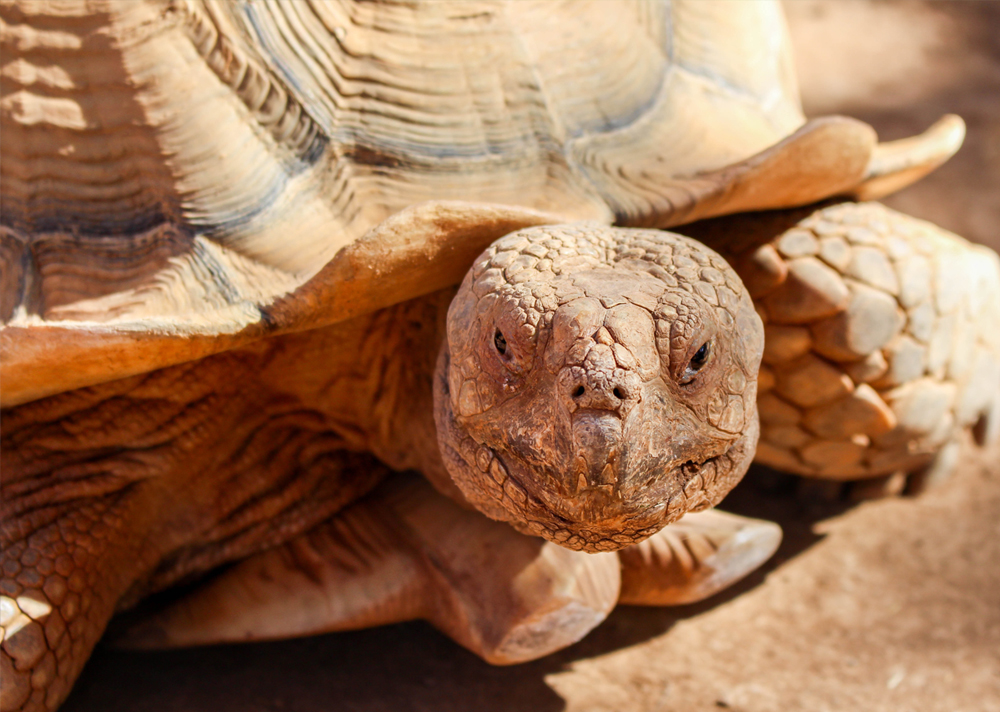Going to a pet store for the first time may seem a bit intimidating. After all, you’re looking to get a new companion to play with and care for, and you want one that fits you. Will you get the peppy dog in the window? Would you rather have the sleek cat curled up in the corner?
Maybe you want something a little more unique. Perhaps you might be interested in one of nature’s most fascinating creatures: the tortoise.
Tortoises can make a fine addition to your family, but there are key things you need to know about them before making your first purchase. Such as…
1. Tortoises and Turtles are Not The Same
Despite popular misconceptions, the word “turtle” and “tortoise” are not used interchangeably. All tortoises are turtles, but not all turtles are tortoises. If this seems confusing, here’s just a few quick differences between the two:
Tortoises are land creatures, while there are turtles who prefer water-based environments
Tortoises are vegetarian, while turtles are omnivores
Tortoises have a heavier shell than turtles
These may seem like irrelevant differences, but they do come into play when you consider how to take care of your tortoise, such as food, shelter, and climate. Make sure that you are intent on buying a tortoise that you receive a tortoise, not a turtle.
2. Tortoises Have a Specific Plant-Based Diet
As mentioned earlier, tortoises are vegetarians, meaning that what you purchase for your new friend will be strictly plant-based. With that said, they should be eating fresh vegetables like kale, collard greens, or peppers. You can also include apples and grapes, though it would be best to keep it on the lower side compared to vegetables. For an added calcium boost for their shells, include grinded calcium into their meals. Stick with this diet and your tortoise will be thanking you later!
3. Tortoises Need Space- A Lot of It
Ideally, your tortoises habitat should match its natural environment as much as possible. It is generally considered the best approach to have them as outdoor pets. However, there are indoor solutions you can use if keeping them outside is not an option. The most common indoor approach is to use a wooden tortoise table that is 30 in. x 18 in. x 6 in. for those under five years old and 4 ft. x 2 ft. x 8 in. for older tortoises. This should give them plenty of space to roam around and not be stressed over habitat size.
4. Tortoises Need UVA/UVB Light and Heat
In addition to a tortoise table, you need to be sure that your land-dweller has plenty of light. Direct sunlight (especially during the summertime) is not advised, so you can make do with a UVA/UVB bulb to simulate the light. In addition, their natural environment involves a lot of heat, as many come from deserts and tropical rainforests. You can mimic this heat with heat bulbs on one side of the enclosure. Keeping it to one side will give them a hot spot around 95°F and a cool spot near 75°F with a nighttime temperature around 60°F.
5. Tortoises are Docile Creatures with Longevity
When you purchase a tortoise, you can be rest assured that it will not be an overly aggressive pet. In fact, they are relatively shy and withdrawn but they can be more social when presented with a playmate. There is a catch to this: pairing two males together can result in competition with both hurting each other. If you do intend on getting multiple tortoises or having someone bring theirs to your place, it may be best to have two females together or a male and female in the same space.
If you’re ready to come out of your shell as a pet owner, consider purchasing a tortoise as your new friend. By keeping their habitat, climate, and temperament in mind, you’ll be rewarded with a low-maintenance pet that may surprise you with its personality.
Sources:
https://www.britannica.com/story/whats-the-difference-between-a-turtle-and-a-tortoise
https://www.petsmart.com/learning-center/reptile-care/what-do-i-feed-my-new-turtle-or-tortoise/A0082.html
https://www.thetortoiseshop.com/tortoise-accommodation
https://www.petsmart.com/learning-center/reptile-care/your-turtle-or-tortoises-new-home/A0094.html
https://www.thesprucepets.com/tortoises-as-pets-1237258


